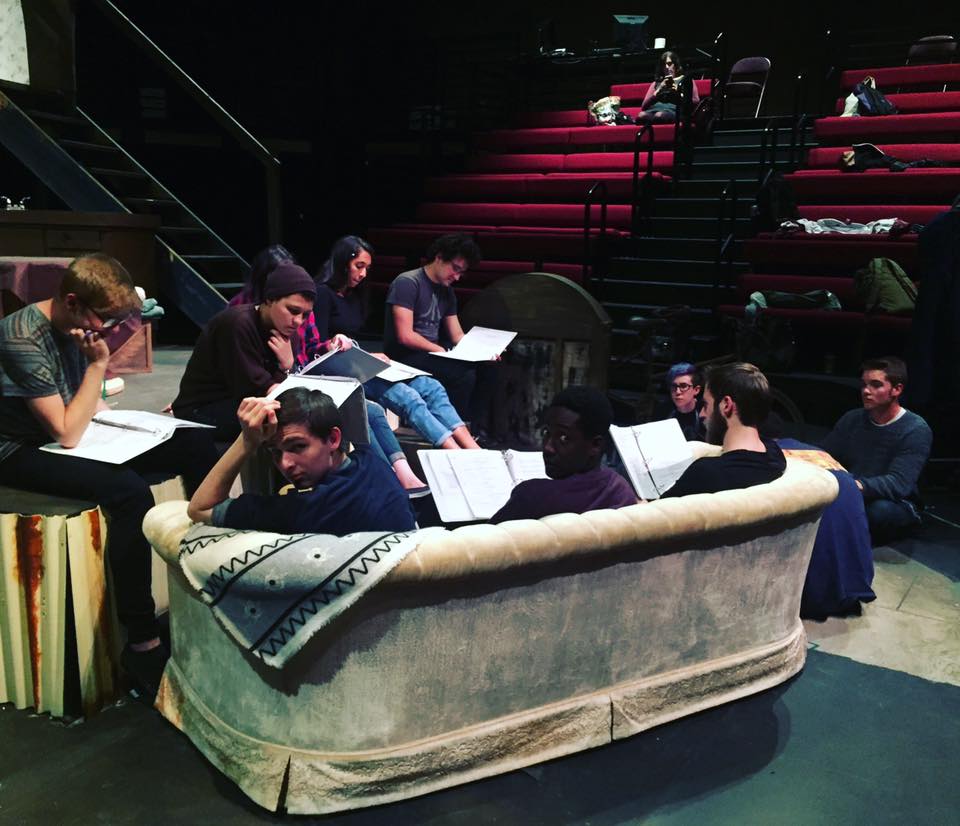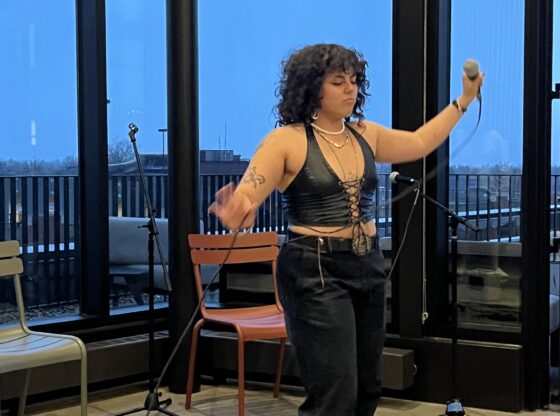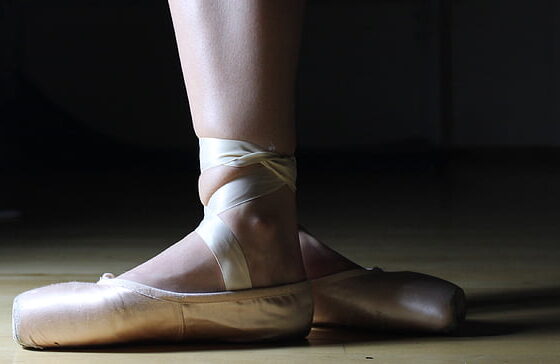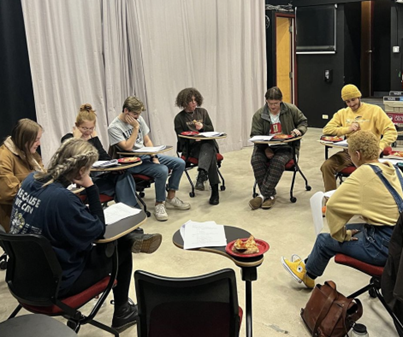If someone entered the Byron Theatre on Monday, April 3 at 7:30 p.m. believing gay and lesbian people do not have the right to be legally married, they undoubtedly exited an hour and a half later with a newfound opinion of justice in humanity. DU Theatre approached the powerful play, “8”—a staged reading of the federal trial Perry v. Schwarzenegger that overturned Proposition 8, thus allowing same-sex couples to get married in California—with utterly genuine grace and confidence. Written by Dustin Lance Black and directed by DU’s own junior theater major Kate Monahan, this play was a beautiful illustration of the definition of dignity.
The plaintiffs in the case were Kris Perry (played by Isis Usborne), Sandy Stier (Tamarra Nelson), their children Elliot (Danforth Webster) and Spencer (Rhianna DeVries), Paul Katami (also Danforth Webster) and Jeff Zarrillo (Erik Frederiksen). Despite the many dual-casted characters, each actor successfully took on the desperate backstories and represented them with authenticity. The entrances and exits were impeccably planned out, clearly showing the division between the different characters for and against the amendment.
The setting of the script was a courtroom, but the stage was decorated like a lived-in house with ripped flower wallpaper and raw light woods, exposing the bright juxtaposition of the cold legal case and the would-be same-sex married couples and their homes, whose legitimacy was up to a judge.
“Based on a true story” found a new palpable meaning as the actors and actresses breathed life into each of the words on their script pages, even despite a few reading stutters. The acting was tangible and raw, and the testimonies portrayed in the court scene immediately penetrated the audience, providing a touching example of what it might have actually felt like in that courtroom in 2013. The script was fast and eye contact between characters was sparse, creating a deliberately cold mood, only starkly contrasted at breaks of slowed speech and eyes meeting that showed the real, justified, fought-for love.
The audience leaned forward with each line, some chins on palms, some obviously uncomfortable, many contemplative and all clearly reminded of the astounding fact that this trial even happened—that equality of human rights was ever even questioned. A couple in the second row locked hands and arms tightly through the entire performance, their love symbolically freed to be publically permissible from this trial.
Blatantly rhetorical questions were posed, like the piercingly random “How convinced are you that you are gay?” accompanied by an awkward chuckle from the audience, and “Do people get married to benefit the community?” in addition to many more asked by various lawyers and witnesses, all played by DU students. After the talkback with the cast at the end of the performance, one anonymous audience member explained, “This play was an image of love and hope for me. I could feel every member of the audience around me in support as they read the script.” Calling “8” “eye-opening” barely begins to describe the power of this play.
Look at DU Theatre’s website for more information about more upcoming empowering performances by DU students.











